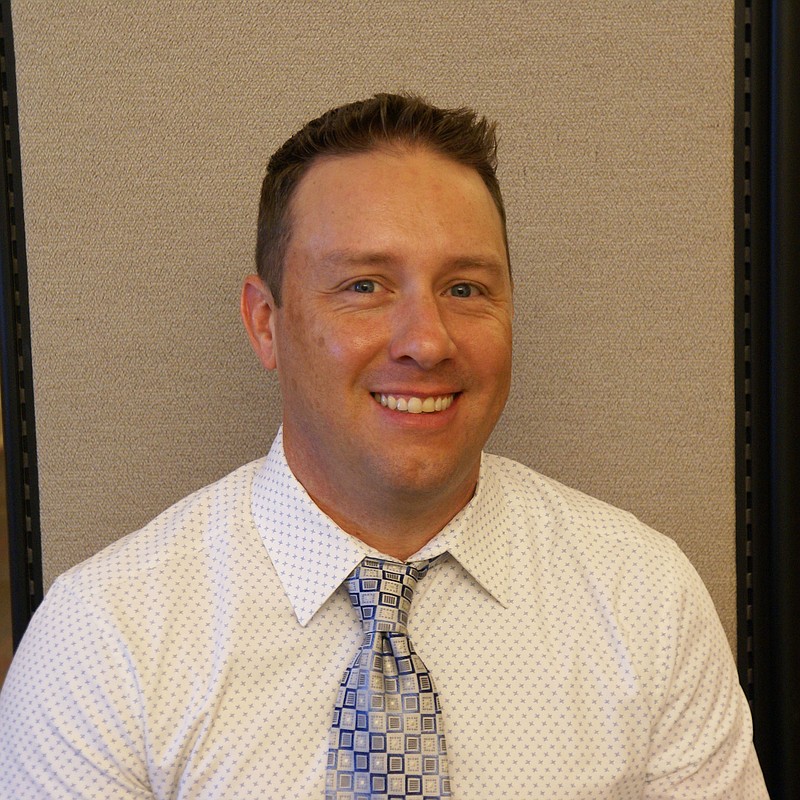The excitement of discovery and the ability to help public health authorities and patients rewards Adam Perkins in his job as supervisor of Missouri’s testing for tuberculosis — a bacterial disease that threatens global health security.
“Bacteria still surprise me,” Perkins, of Holts Summit, said of every day on his job being different.
He started working with the Department of Health and Senior Services in 2009 after he graduated with a degree in microbiology from Clemson University in 2003 and then went on to study at the University of Missouri.
Microbiology was not always what Perkins had in mind.
He was born in Hartford, Connecticut, and grew up in that state as well as New Hampshire. His interest in science in high school was in chemistry and physics, so he started out in college studying biochemistry.
However, the world of bacteria fascinated him, so he switched his focus. With DHSS, he has worked in parasitology, then with whooping cough and foodborne pathogens.
For the past two and half years, he has worked with tuberculosis, or TB, and he is the laboratory supervisor for the TB section of the State Public Health Laboratory’s microbiology unit, supervising all testing for TB in samples from patients.
According to state, federal and global health authorities, TB is the world’s leading killer when it comes to individual infectious agents — at least before COVID-19 emerged. TB is an ancient, contagious, airborne disease — released into the air by coughs or sneezes — and, compared to COVID-19, an even larger share of people infected with TB do not show any symptoms.
Unlike the viral COVID-19, however, people infected with TB who are not showing symptoms cannot infect other people, and TB, at least historically, has been curable by antibiotics.
Almost a third of the people in the world are infected with TB, and 5-10 percent of them will develop the disease over the course of their lives — people with weakened immune systems being at the highest risk.
If untreated, Perkins said, TB can be lethal in a year.
Much of the world’s TB burden is borne by the people of a few countries outside the United States, but there are approximately 10,000 new cases in the U.S. each year, which especially poses a threat to health care workers, he said.
There are an estimated 10 million-15 million people in the United States infected with TB, and Missouri had a total of 60 new counted TB cases in 2020 through the end of November, according to DHSS.
“It’s not necessarily just a disease of poverty,” Perkins said.
“Any connection to socioeconomic status is a stigma that needs to be pushed back against,” he added, because that stigma makes it more difficult to find cases and get patients to comply with requests to isolate and follow the treatments set out for them. “The less successful we are in finding cases early on, the more likely it is that people who would never imagine that they could be infected with TB will be exposed.”
Time is everything when it comes to TB, and Perkins said it’s exciting to quickly identify whether someone’s TB infection is resistant to multiple antibiotics because that means the patient gets the correct drugs faster.
“Those are good moments,” he said of when someone gets the treatment they need or gets to leave isolation sooner based on the information the lab provides from samples to local public health departments on the cases they manage.
Perkins said TB has not gone away just because of the COVID-19 pandemic. Everyone at the state health lab has also had to help adjust to the task of processing hundreds of COVID-19 tests a day on top of their other work — all while protecting themselves from the coronavirus with social distancing and masks.
Like other people, the pandemic has interrupted some of Perkins’ pastimes or forced them to adapt, but he said he’s a huge sports fan who enjoys football, golf, and recreational basketball and softball.
He and his wife have three children — the youngest welcomed into the world in September — and he likes to be involved in his children’s activities, whether through coaching or being a den leader in Cub Scouts.
Perkins was selected to be among last fall’s class of the state’s Leadership Academy, which develops talent within the state’s workforce.

